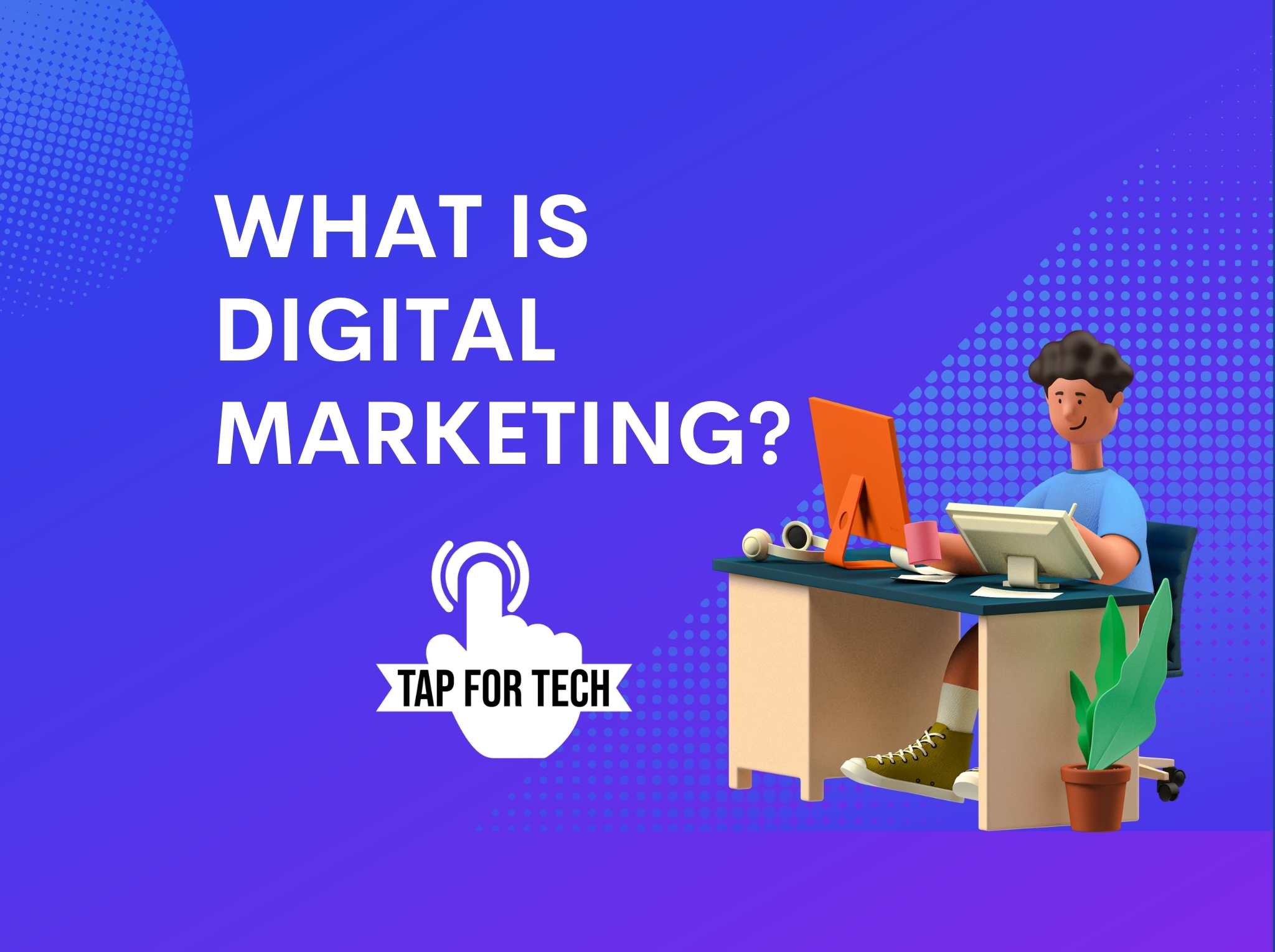Digital Marketing: The Ultimate Guide To Boost Your Business In 2023
Hey there, marketing enthusiast! So, you're probably wondering what all the fuss is about digital marketing, right? Well, buckle up because we're diving deep into the world where businesses thrive online. Whether you're a small startup or a big player in the game, digital marketing has become the secret weapon for growth. And trust me, it’s not just about posting ads on social media. There’s so much more to explore, and we’re about to break it down for you.
In today’s digital age, having an online presence is no longer optional—it’s essential. Digital marketing plays a crucial role in connecting brands with their target audience. Think about it: people spend hours scrolling, searching, and interacting online. As a business owner or marketer, you need to be where your audience is. And that’s exactly what digital marketing helps you achieve.
Now, before we dive deeper, let’s clear something up. Digital marketing isn’t rocket science, but it does require strategy, creativity, and a bit of hustle. From SEO to social media, email campaigns to paid ads, there’s a lot to learn. But don’t worry—we’re here to guide you through it all. By the end of this article, you’ll have a solid understanding of how to use digital marketing to skyrocket your business. So, are you ready to get started?
- Best Auntie Annes Pretzel Your Ultimate Guide To The Pretzel Perfection
- Top Gun Character Names A Deep Dive Into The Legendary Aviators
What Exactly is Digital Marketing?
Alright, let’s start with the basics. Digital marketing refers to all marketing efforts that use electronic devices or the internet. Businesses leverage digital channels like search engines, social media, email, and websites to connect with current and prospective customers. The beauty of digital marketing is that it allows you to reach a global audience, measure results in real-time, and optimize your strategies for better performance.
Here’s a quick breakdown of why digital marketing matters:
- It’s cost-effective compared to traditional marketing methods.
- You can target specific audiences based on demographics, interests, and behaviors.
- It provides measurable results, so you know exactly what’s working and what’s not.
- It fosters engagement and builds lasting relationships with your audience.
So, whether you’re selling products, services, or ideas, digital marketing gives you the tools to succeed in today’s competitive market.
- Annalynne Mccord The Rising Star Of Hollywood Who Stole Our Hearts
- Taylor Swift Speak Now Taylors Version A Deep Dive Into The Album That Redefined Pop
Why Digital Marketing is Crucial for Your Business
Let’s face it: if your business isn’t visible online, it might as well not exist. In 2023, consumers rely heavily on digital platforms to research, compare, and purchase products. According to Statista, global digital ad spending reached over $500 billion in 2022, and it’s expected to grow even more in the coming years. That’s a massive opportunity for businesses that know how to leverage digital marketing effectively.
Here are a few reasons why digital marketing is crucial:
- Increased visibility: With the right strategies, you can ensure your brand is seen by the right people at the right time.
- Higher ROI: Digital marketing offers better return on investment compared to traditional marketing methods.
- Targeted advertising: You can reach specific groups of people who are most likely to be interested in your offerings.
- Improved customer experience: By engaging with your audience through various digital channels, you can build stronger relationships and loyalty.
And let’s not forget the competitive advantage. If your competitors are already using digital marketing to their advantage, you can’t afford to fall behind.
Types of Digital Marketing Channels
Now that we understand what digital marketing is and why it’s important, let’s explore the different channels you can use. Each channel has its own strengths and is suited for specific goals. Here are some of the most popular digital marketing channels:
Search Engine Optimization (SEO)
SEO is all about improving your website’s visibility in search engine results pages (SERPs). By optimizing your content with relevant keywords, meta tags, and quality backlinks, you can rank higher and attract organic traffic. SEO is a long-term strategy that requires consistent effort, but the rewards are well worth it.
Pay-Per-Click (PPC) Advertising
PPC is a model where advertisers pay each time a user clicks on their ad. Google Ads is one of the most popular platforms for PPC campaigns, allowing businesses to target specific keywords and demographics. While PPC can deliver quick results, it’s essential to manage your budget wisely to avoid overspending.
Social Media Marketing
Social media platforms like Facebook, Instagram, Twitter, and LinkedIn offer powerful tools for promoting your brand. Whether you’re running ads or creating organic content, social media marketing helps you engage with your audience and build a community around your brand.
Email Marketing
Email remains one of the most effective digital marketing channels. By building an email list and sending targeted campaigns, you can nurture leads, promote products, and keep your audience informed. The key to successful email marketing is personalization and relevance.
Content Marketing
Content is king in the world of digital marketing. By creating valuable and informative content, you can attract and retain a clearly defined audience. Blog posts, videos, infographics, and podcasts are just a few examples of content formats that can drive results.
Key Components of a Successful Digital Marketing Strategy
Creating a digital marketing strategy isn’t as simple as throwing ads on social media. It requires careful planning, execution, and optimization. Here are some key components to consider:
Defining Your Target Audience
Knowing who your ideal customer is will help you tailor your marketing efforts more effectively. Use tools like Google Analytics and social media insights to gather data about your audience’s demographics, interests, and behaviors.
Setting Clear Goals
What do you want to achieve with your digital marketing efforts? Whether it’s increasing website traffic, generating leads, or boosting sales, having clear goals will guide your strategy and help you measure success.
Selecting the Right Channels
Not all channels are suitable for every business. Focus on the platforms where your target audience spends the most time. For example, if you’re targeting professionals, LinkedIn might be more effective than Instagram.
Measuring and Optimizing
Don’t just set it and forget it. Regularly monitor your campaigns’ performance using analytics tools. Use the data to identify what’s working and what needs improvement, then make adjustments accordingly.
How to Get Started with Digital Marketing
Starting your digital marketing journey can seem overwhelming, but it doesn’t have to be. Here’s a step-by-step guide to help you get started:
- Identify your business goals and target audience.
- Conduct a competitive analysis to see what your competitors are doing.
- Create a content calendar to plan and organize your campaigns.
- Set up tracking tools like Google Analytics to measure performance.
- Launch your campaigns and continuously optimize based on results.
Remember, digital marketing is a marathon, not a sprint. Stay patient and persistent, and you’ll see the fruits of your labor over time.
The Role of Data and Analytics in Digital Marketing
Data is the backbone of digital marketing. Without it, you’re essentially flying blind. Analytics tools provide valuable insights into how your campaigns are performing, where your audience is coming from, and what content resonates most with them. Some popular analytics platforms include:
- Google Analytics: Tracks website traffic, user behavior, and conversion rates.
- Facebook Insights: Provides data on your social media performance and audience demographics.
- HubSpot: Offers a comprehensive suite of tools for marketing, sales, and customer service.
By leveraging these tools, you can make data-driven decisions that lead to better outcomes.
Challenges in Digital Marketing
While digital marketing offers immense opportunities, it’s not without its challenges. Here are a few common hurdles you might face:
Algorithm Changes
Social media platforms and search engines frequently update their algorithms, which can impact your campaign performance. Stay informed about these changes and adapt your strategies accordingly.
Ad Fatigue
When users see the same ads repeatedly, they may start to ignore them. To combat ad fatigue, rotate your ad creatives and test different messaging.
Competition
The digital landscape is crowded, and standing out can be tough. Focus on creating unique and engaging content that sets you apart from the competition.
Trends Shaping the Future of Digital Marketing
As technology evolves, so does digital marketing. Here are a few trends to watch out for in the coming years:
Artificial Intelligence and Machine Learning
AI and machine learning are revolutionizing the way businesses target and engage with their audience. From personalized recommendations to chatbots, these technologies offer endless possibilities.
Video Content
Video continues to dominate the digital landscape. Short-form videos on platforms like TikTok and Instagram Reels are gaining popularity, making it essential for brands to invest in video marketing.
Augmented Reality (AR) and Virtual Reality (VR)
AR and VR are creating immersive experiences that allow consumers to interact with products in new ways. As these technologies become more accessible, they’ll play a bigger role in digital marketing.
Conclusion
So, there you have it—a comprehensive guide to digital marketing in 2023. From understanding the basics to exploring advanced strategies, we’ve covered it all. Remember, digital marketing is a dynamic field that requires continuous learning and adaptation. But with the right mindset and tools, you can achieve great success.
Now it’s your turn. Take what you’ve learned and start implementing it in your business. Share this article with your friends and colleagues, and don’t forget to leave a comment below with your thoughts. We’d love to hear from you!
Table of Contents
- What Exactly is Digital Marketing?
- Why Digital Marketing is Crucial for Your Business
- Types of Digital Marketing Channels
- Key Components of a Successful Digital Marketing Strategy
- How to Get Started with Digital Marketing
- The Role of Data and Analytics in Digital Marketing
- Challenges in Digital Marketing
- Trends Shaping the Future of Digital Marketing
- Conclusion



Detail Author:
- Name : Kristian Stark
- Username : edward.torp
- Email : fhessel@reichel.com
- Birthdate : 1979-11-04
- Address : 647 Monserrate Tunnel Suite 611 Port Ressie, UT 17725
- Phone : +13463633345
- Company : Marquardt-Harber
- Job : Pile-Driver Operator
- Bio : At quis ratione odio maxime sunt odit qui eos. Commodi iure at ex amet nam ea.
Socials
facebook:
- url : https://facebook.com/kelsi6378
- username : kelsi6378
- bio : Est non odit ea. Odit unde tempora quia mollitia.
- followers : 5322
- following : 1144
twitter:
- url : https://twitter.com/kelsi.simonis
- username : kelsi.simonis
- bio : Laboriosam quibusdam nulla inventore dolores. Rerum sunt quae repellendus et esse. Voluptatem aut ad sed modi est reprehenderit facilis.
- followers : 3127
- following : 326